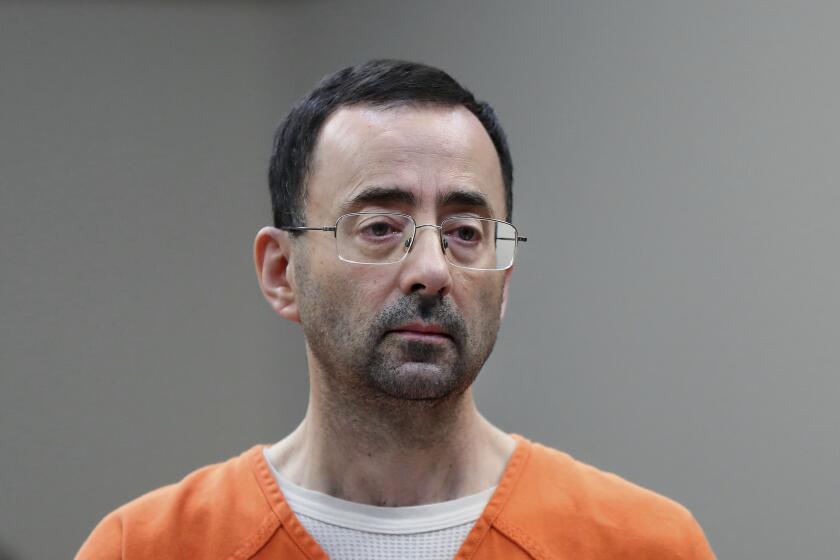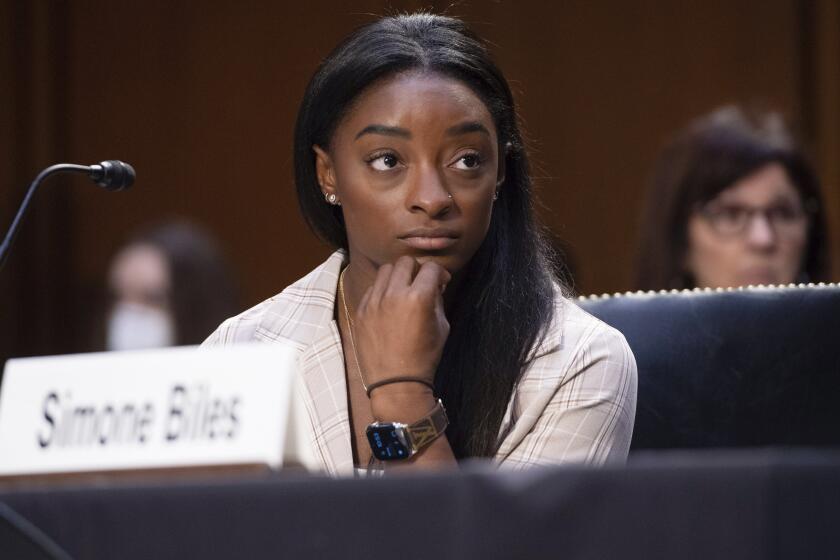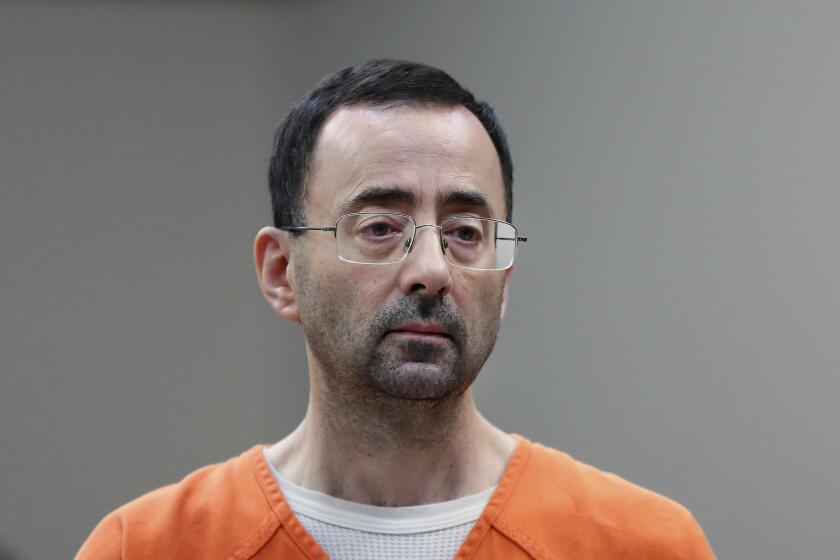U.S. to pay victims $138.7 million for botching Larry Nassar sex assault investigation

DETROIT — The U.S. Justice Department announced a $138.7-million settlement Tuesday with more than 100 people who accused the FBI of grossly mishandling allegations of sexual assault against Larry Nassar in 2015 and 2016, a critical time gap that allowed the sports doctor to continue to prey on victims before his arrest.
When combined with other settlements, $1 billion now has been set aside by various organizations to compensate hundreds of women who said Nassar assaulted them under the guise of treatment for sports injuries.
Nassar worked at Michigan State University and also served as a team doctor at Indianapolis-based USA Gymnastics. He’s now serving decades in prison for assaulting female athletes, including medal-winning Olympic gymnasts.
The department’s internal watchdog found agents made serious errors in their investigation and did not respond with urgency to sex abuse allegations.
Acting Associate Atty. Gen. Benjamin Mizer said Nassar betrayed the trust of those in his care for decades, and that the “allegations should have been taken seriously from the outset.”
“While these settlements won’t undo the harm Nassar inflicted, our hope is that they will help give the victims of his crimes some of the critical support they need to continue healing,” Mizer said of the agreement to settle 139 claims.
The Justice Department has acknowledged that it failed to step in. For more than a year, FBI agents in Indianapolis and Los Angeles had knowledge of allegations against him but apparently took no action, an internal investigation found.
FBI Director Christopher Wray was contrite — and very blunt — when he spoke to survivors at a Senate hearing in 2021. Those victims include decorated Olympians Simone Biles, Aly Raisman and McKayla Maroney.
Simone Biles told Congress that ‘enough is enough’ in emotional testimony along with other young gymnasts about being sexually abused by Larry Nassar.
“I’m sorry that so many different people let you down, over and over again,” Wray said. “And I’m especially sorry that there were people at the FBI who had their own chance to stop this monster back in 2015 and failed.”
After a search, investigators said in 2016 that they had found images of child sex abuse in Nassar’s possession and followed up with federal charges against him. Separately, the Michigan attorney general’s office handled the assault charges that ultimately shocked the sports world and led to an extraordinary days-long sentencing hearing with gripping testimony about his crimes.
“I’m deeply grateful. Accountability with the Justice Department has been a long time in coming,” said Rachael Denhollander of Louisville, Ky., who is not part of the latest settlement but was the first person to publicly step forward and detail abuse at the hands of Nassar.
Two people familiar with the matter said the attack happened Sunday at United States Penitentiary Coleman in Florida. The people said he was in stable condition Monday.
“The unfortunate reality is that what we are seeing today is something that most survivors never see,” Denhollander told the Associated Press. “Most survivors never see accountability. Most survivors never see justice. Most survivors never get restitution.”
Michigan State University, which was also accused of missing chances over many years to stop Nassar, agreed to pay $500 million to more than 300 women and girls who were assaulted. USA Gymnastics and the U.S. Olympic and Paralympic Committee made a $380-million settlement.
Mick Grewal, an attorney who represented 44 people in claims against the government, said the $1 billion in overall settlements speaks to “the travesty that occurred.”
White writes for the Associated Press. AP writers Mike Householder in Detroit; Dylan Lovan in Louisville, Ky.; and Alanna Durkin Richer in Washington, D.C., contributed to this report.
More to Read
Sign up for Essential California
The most important California stories and recommendations in your inbox every morning.
You may occasionally receive promotional content from the Los Angeles Times.













